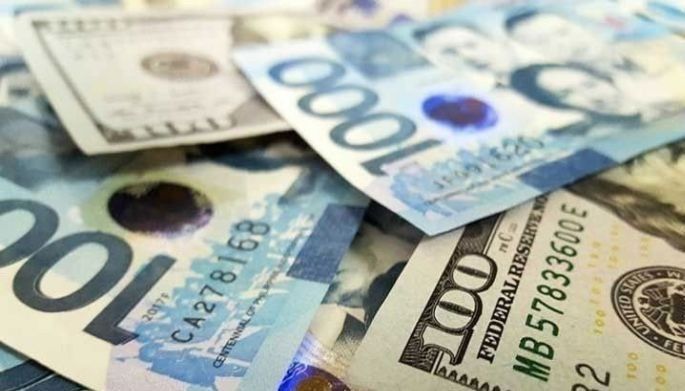Hot money inflow hits 11-year high

Registers at $1.36 billion in April
MANILA, Philippines — The Philippines registered a net inflow of foreign portfolio investments amounting to $1.36 billion in April, the highest in more than 11 years, after recording a stronger-than-expected economic growth in the first quarter, according to the Bangko Sentral ng Pilipinas.
BSP data showed that the level of hot money last month was the highest since the $1.6 billion recorded in November 2010.
Foreign portfolio investments are also known as hot money or speculative funds as these flow regularly among financial markets as investors attempt to ensure they get the highest short-term interest rates possible.
The net inflow in April reversed the net outflow of $373.95 million in the same month last year as well as the $305.08 million in March.
The gross inflow of speculative funds amounted to $2.18 billion in April, 3.3 times the $551.16 million recorded in the same month last year.
According to the BSP, the bulk or 91.5 percent of the inflows, which came from Singapore, the United Kingdom, the US, Hong Kong and Luxembourg, were invested in securities listed on the Philippine Stock Exchange, particularly electricity, energy, power and water; banks; holding companies; property and transportation services.
The remaining 8.5 percent went to investments in peso government securities.
On the other hand, withdrawals of foreign portfolio investments declined by 19.7 percent to $823.32 million in April from $1.02 billion in the same month last year.
Michael Ricafort, chief economist at Rizal Commercial Banking Corp., said that market sentiment is supported by generally better local economic data.
The country’s domestic output as measured by the gross domestic product (GDP) grew by 8.3 percent in the first quarter, faster than the 7.8 percent recorded in the fourth quarter of last year and reversing the 3.8 percent contraction in the same quarter last year.
“Furthermore, the national and local election campaign, surprisingly almost back to pre-pandemic large crowds or gatherings, led to increased election-related spending, and thereby could have boosted economic/business activities and could have also benefited some listed companies in terms of higher sales, net income and valuations,” Ricafort said.
According to Ricafort, bright spots for the Philippine economy include still near-record-high remittances from overseas Filipino workers, foreign direct investments still at pre-pandemic highs, and robust gross international reserves.
Ricafort also cited the declining unemployment rate at 5.8 percent – already the lowest since the pandemic started in February 2020 – improving purchasing managers’ index, accelerating credit growth and quickening inflation.
However, the chief economist of the Yuchengco-led bank said offsetting risk factors include the more aggressive rate hikes by the US Federal Reserve, the lingering Russia-Ukraine conflict and lockdowns in China due to rising COVID cases.
From January to April, the Philippines yielded a net inflow of foreign portfolio investments amounting to $1.34 billion, a reversal of the net outflow of $857.44 million in the same period last year.
After a strong performance in April, gross inflows jumped by 36.4 percent to $5.13 billion in the first four months from $3.76 billion in the same month last year, while gross outflows decreased by 17.9 percent to $3.79 billion from $4.62 billion.
Last year, the Philippines missed its net inflow target of $1.5 billion as the country registered a net outflow of speculative funds amounting to $574.46 million, 86.4 percent lower than the $4.24 billion net outflow recorded during the height of the pandemic in 2020.
The BSP expects foreign portfolio investments bouncing back strongly with a net inflow of $4 billion for this year and $6.7 billion for next year.
Ricafort expects further strong inflows of foreign portfolio investments as the economy further reopens toward greater normalcy with the lowest Alert Level 1 for Metro Manila and nearby areas since March 1 as well as the recent approval of reform measures to further liberalize foreign ownership limits into the country, such as the amendments to the Public Services Act, Foreign Investments Act, and Retail Trade Liberalization Law.
The reforms, Ricafort said, would encourage the entry of more foreign investments into the country, creating more employment and other business opportunities, helping sustain the economy’s recovery from the global health crisis.
Likewise, Ricafort said foreign investors are awaiting the policy direction of the incoming administration of president-elect Ferdinand Marcos Jr. and vice president-elect Sara Duterte.
- Latest
- Trending
























